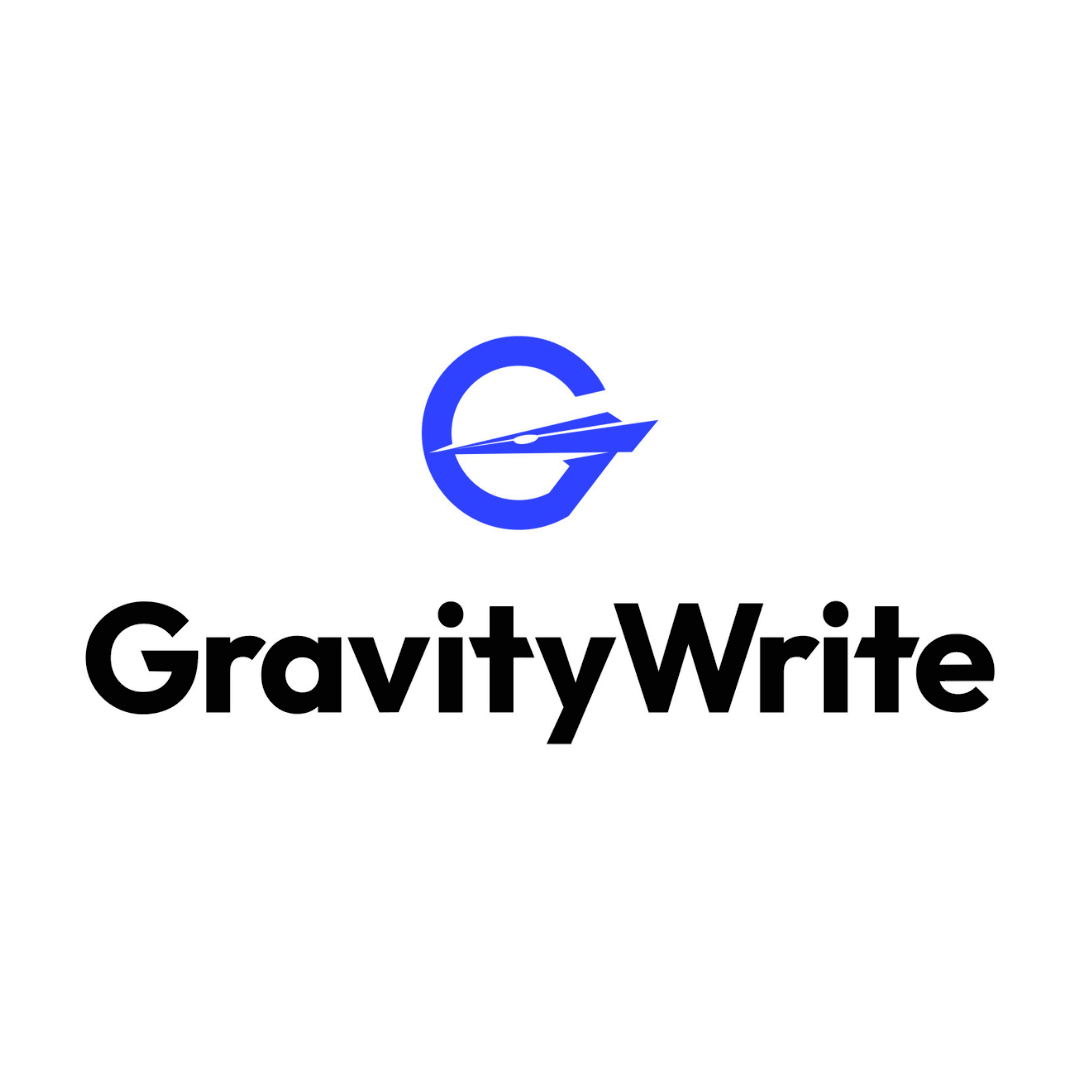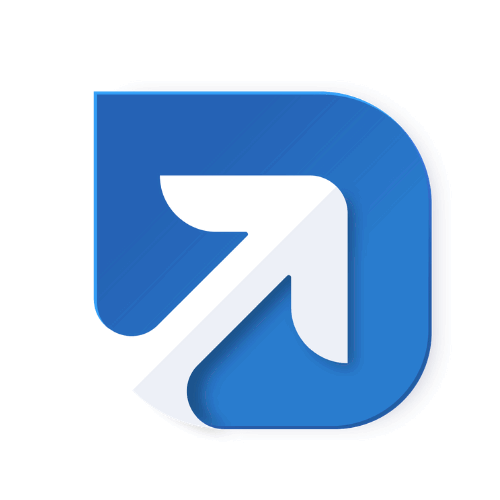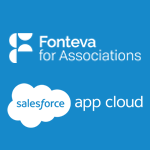Description

SurveyMonkey

GravityWrite
Comprehensive Overview: SurveyMonkey vs GravityWrite
SurveyMonkey
a) Primary Functions and Target Markets
Primary Functions: SurveyMonkey is renowned for its online survey creation and distribution platform. The core functions include designing surveys, collecting responses, analyzing results, and providing insights based on the data gathered. The platform offers a variety of templates and customization options to suit different research needs.
Target Markets: SurveyMonkey serves a wide range of markets, including:
- Businesses looking to gather customer satisfaction and feedback data.
- Academic institutions conducting research surveys.
- Nonprofits and governmental organizations interested in public opinion.
- Healthcare providers seeking patient feedback.
- Event organizers collecting participant feedback.
b) Market Share and User Base
SurveyMonkey is one of the most recognized names in the online survey industry and enjoys a significant market share owing to its longstanding presence. It caters to millions of users globally, including individuals, small businesses, and large enterprises. With numerous competitors like Google Forms and Qualtrics, SurveyMonkey holds a substantial user base thanks to its ease of use and free-to-premium offerings.
c) Key Differentiating Factors
- User-Friendliness: SurveyMonkey is known for its intuitive interface and ease of use, which appeals to a wide range of users, from beginners to advanced.
- Diverse Features: Offers robust analysis and reporting tools, along with integration capabilities with platforms like Salesforce and Mailchimp.
- Pricing Tiers: Offers both free and premium features, allowing scalability for business growth.
- Brand Recognition: Its longstanding reputation and wide user base contribute to its authority in the market.
GravityWrite
a) Primary Functions and Target Markets
Primary Functions: GravityWrite is not as universally known as SurveyMonkey and is likely to be a fictional or specific niche tool. Assuming it relates to the writing and AI content creation industry, such tools typically function to generate written content, assist with content ideation, or improve writing through AI-powered suggestions and templates.
Target Markets:
- Content creators and copywriters needing assistance in generating ideas or drafting content.
- Marketing agencies managing content campaigns.
- Small businesses aiming to streamline content production processes.
- Educational institutions focusing on writing support tools.
b) Market Share and User Base
GravityWrite, assuming it functions similarly to other AI writing tools, would compete in a burgeoning market of AI content generators like Jasper or Writesonic. Its market share and user base would depend on factors like marketing effectiveness, feature set, and integration capabilities with other platforms. Generally, these tools are rapidly growing in popularity due to the increasing demand for content.
c) Key Differentiating Factors
- AI Capabilities: Advanced natural language processing and generation capabilities.
- Customization: Ability to tailor writing styles or tone according to user preference.
- Integration: Ease of integration with content management systems and marketing tools.
- Cost-effectiveness: Pricing models that cater to both individuals and corporate clients.
Skyword
a) Primary Functions and Target Markets
Primary Functions: Skyword is a content marketing platform focusing on content creation, strategy, management, and amplification. Its primary function is to help brands produce and distribute engaging content that drives customer engagement and brand loyalty.
Target Markets:
- Enterprises looking for comprehensive content marketing solutions.
- Brands aiming to build a strong content presence.
- Digital marketing agencies managing multiple client accounts.
- B2B and B2C companies focused on content-led marketing campaigns.
b) Market Share and User Base
Skyword commands a respectable position in the content marketing industry due to its tailored solutions for large organizations. It competes with other content marketing platforms like Contently and Kapost. While specific market share data may not be publicly available, Skyword serves a sizable clientele that includes several Fortune 1000 companies.
c) Key Differentiating Factors
- Comprehensive Platform: Offers a full suite of content marketing services from strategy to analytics.
- Talent Network: Access to a global network of vetted freelance creatives.
- Holistic Approach: Focuses on both the creation and distribution of content, supporting omnichannel marketing strategies.
- Enterprise Focus: Strong emphasis on serving large brands with customized, scalable solutions.
Overall, while SurveyMonkey, GravityWrite, and Skyword operate in different spaces—survey feedback, AI writing, and content marketing, respectively—their success and differentiation lie in understanding and addressing the specific needs of their target markets. SurveyMonkey's reputation and simplicity, GravityWrite's AI prowess, and Skyword's enterprise-centric services each define their positions in the tech ecosystem.
Contact Info

Year founded :
1999
Not Available
Not Available
United States
Not Available

Year founded :
2023
31-1800-648-659
Not Available
Netherlands
http://www.linkedin.com/company/gravitywrite
Feature Similarity Breakdown: SurveyMonkey, GravityWrite
When comparing SurveyMonkey, GravityWrite, and Skyword, it's important to understand that these tools cater to somewhat different needs, although there may be some overlaps in functionality. Here's a breakdown of their features:
a) Core Features in Common
-
SurveyMonkey:
- Primarily a survey creation tool.
- Features include survey design, logic branching, question banks, data analysis, and reporting.
-
GravityWrite:
- GravityWrite is likely a content generation and management tool, often leveraging AI for content creation or enhancement.
- Common features might include AI-assisted writing, content templates, and SEO analysis.
-
Skyword:
- Skyword is a content marketing platform designed for content creation, management, and distribution.
- It provides tools for collaboration, content strategy, and performance analytics.
Common Features Across All Three:
- They all may feature some form of analytics or performance tracking, given that SurveyMonkey provides survey analytics and GravityWrite and Skyword may offer content performance insights.
- Possibilities for integration with other tools or platforms for enhanced functionality.
- Focus on improving user or customer engagement through their respective channels.
b) User Interfaces Comparison
-
SurveyMonkey:
- Known for its user-friendly, intuitive design which caters mostly to non-technical users.
- UI emphasizes ease of survey creation and data visualization.
-
GravityWrite:
- If it is a content-oriented tool, its UI likely focuses on simplicity in content generation and an intuitive editor interface.
- Interfaces would include text editors with AI assistance features smoothly integrated.
-
Skyword:
- The UI is designed to facilitate complex content marketing processes.
- Emphasizes workflow management, collaboration, and multi-channel publishing features in its interface.
In general, SurveyMonkey would have a more form-centric UI, while GravityWrite and Skyword might boast content-focused designs. The UI for GravityWrite would prioritize easy content creation with AI tools, whereas Skyword’s would focus on holistic content strategy management.
c) Unique Features
-
SurveyMonkey:
- Offers a vast range of survey templates and customization options.
- Advanced features like survey logic, sentiment analysis, and specialized survey methodologies.
-
GravityWrite:
- Likely unique AI-driven content generation features tailored for specific content styles or types.
- Could offer advanced AI insights for improving writing or SEO optimization that are unique compared to traditional tools.
-
Skyword:
- Unique for its comprehensive approach to content marketing, including strategic planning, creation, and distribution all in one platform.
- Collaboration features that are likely more advanced than those found in a typical survey or basic content creation tool.
It's essential to assess these tools based on specific business needs as their unique qualities can be leveraged differently depending on the focus—whether on data collection, content creation, or integrated content marketing strategy.
Features

Not Available

Not Available
Best Fit Use Cases: SurveyMonkey, GravityWrite
SurveyMonkey, GravityWrite, and Skyword are distinct tools designed to serve different purposes and cater to various aspects of business needs. Here’s a detailed look at their best fit use cases, scenarios where they shine, and how they cater to different industry verticals or company sizes:
a) SurveyMonkey
Best Fit Use Cases:
- Market Research: Ideal for businesses conducting surveys to gather consumer feedback, understand market trends, or evaluate brand perception.
- Employee Feedback: Companies looking to gauge employee satisfaction, conduct performance evaluations, or understand workplace culture can use SurveyMonkey for its robust feedback tools.
- Event Planning: Organizations hosting events can use SurveyMonkey for pre-event surveys, registration, and post-event feedback to streamline processes and improve future events.
- Educational Institutions: Schools and universities can utilize it for collecting student feedback on courses and faculty performance.
Industry Verticals and Company Sizes:
- Industries: Healthcare, education, marketing agencies, and non-profits.
- Company Sizes: Small to large enterprises benefit from its scalable solutions, with larger companies appreciating its advanced analytics and integrations.
b) GravityWrite
Preferred Scenarios:
- Content Creation: GravityWrite is ideal for businesses needing assistance with content generation such as blog posts, social media updates, or marketing copy.
- Drafting and Editing: Teams that require fast drafting or editing capabilities for operational documents or communication can leverage its AI-driven capabilities.
- Digital Marketing: Agencies or companies focused on SEO and content marketing might prefer GravityWrite for its ability to generate optimized text efficiently.
Industry Verticals and Company Sizes:
- Industries: Digital marketing, content production, e-commerce, and tech startups.
- Company Sizes: Suitable for small to medium-sized businesses that need cost-effective, scalable content solutions.
c) Skyword
When to Consider:
- Branded Storytelling: Skyword excels in creating narrative-driven content that connects brands with their audience on a deeper level, perfect for long-term content strategies.
- Content Strategy and Management: Companies needing end-to-end content management, including strategy, creation, and distribution, often choose Skyword.
- Integrated Campaigns: Enterprises running large, multi-channel content campaigns will benefit from its comprehensive approach and professional network of creatives.
Industry Verticals and Company Sizes:
- Industries: Finance, healthcare, travel, and enterprise-level brands.
- Company Sizes: Primarily serves medium to large enterprises, with a focus on those looking for scale and high-quality production capabilities.
Differentiation in Catering to Industry Verticals and Company Sizes:
- SurveyMonkey tends to be more versatile and appealing across all company sizes due to its straightforward nature and accessibility, fitting businesses in traditional markets that rely on data-driven decision-making.
- GravityWrite is more focused on content-heavy industries or those aiming to build a strong online presence quickly, fitting well with smaller companies and startups due to its automation and efficiency.
- Skyword targets those organizations that have advanced needs in terms of rich, engaging content and are willing to invest in maintaining strong brand narratives, which suits larger enterprises that aim for comprehensive content strategies.
In summary, the choice between these tools depends on a business's specific needs—whether focusing on feedback and surveys, automated content generation, or crafted branded storytelling. Each caters to different aspects of business operations and serves distinct industry needs.
Pricing

Pricing Not Available

Pricing Not Available
Metrics History
Metrics History
Comparing teamSize across companies
Conclusion & Final Verdict: SurveyMonkey vs GravityWrite
To determine the best choice among SurveyMonkey, GravityWrite, and Skyword, let's assess each in terms of functionality, user experience, pricing, and unique offerings.
a) Best Overall Value
SurveyMonkey is likely the best overall value for users who require robust tools for creating and analyzing surveys. Its flexibility, integration capabilities, and scalability suit a broad array of industries and research needs.
b) Pros and Cons
SurveyMonkey:
- Pros:
- Extensive array of templates and question types.
- Strong data analysis tools.
- Easy integration with other software (e.g., CRM systems).
- Reliable customer support and a well-documented knowledge base.
- Cons:
- Pricing can be high for advanced features or large respondent pools.
- Some users may find the interface dated compared to newer competitors.
GravityWrite:
- Pros:
- Excellent for content creation with intelligent writing suggestions.
- Fast, real-time editing capabilities.
- User-friendly interface that is accessible to non-technical users.
- Cons:
- Less effective for complex survey or analytical tasks.
- Integration and collaboration features may be more limited compared to other platforms.
Skyword:
- Pros:
- Strong content marketing focus, excellent for brands creating narrative-driven campaigns.
- Advanced content management and distribution features.
- Effective at streamlining workflows and supporting multi-channel strategies.
- Cons:
- Can be overkill for small businesses or users focused solely on surveys.
- Complex platform that requires training and experience to maximize ROI.
c) Recommendations for Users
-
For Those Needing Survey and Feedback Tools:
- Choose SurveyMonkey if your focus is on gathering and analyzing data through surveys. Its strength in creating detailed, customizable surveys with robust analysis tools makes it well-suited for research and feedback purposes.
-
For Content Creation and Writing Assistance:
- Opt for GravityWrite if you need a platform focused on writing and content assistance. It's the better choice if your main need is generating and refining textual content quickly and efficiently.
-
For Content Marketing and Brand Storytelling:
- Select Skyword if your primary aim is developing comprehensive content marketing strategies. It's ideal for enterprises seeking to build strong narrative campaigns and manage content across multiple channels.
Ultimately, your choice should reflect your specific needs, budget, and the scale of your operations. SurveyMonkey is the top choice for data gathering and analytics, GravityWrite excels in generating content, and Skyword is unparalleled for integrated content marketing efforts.
Add to compare
Add similar companies




